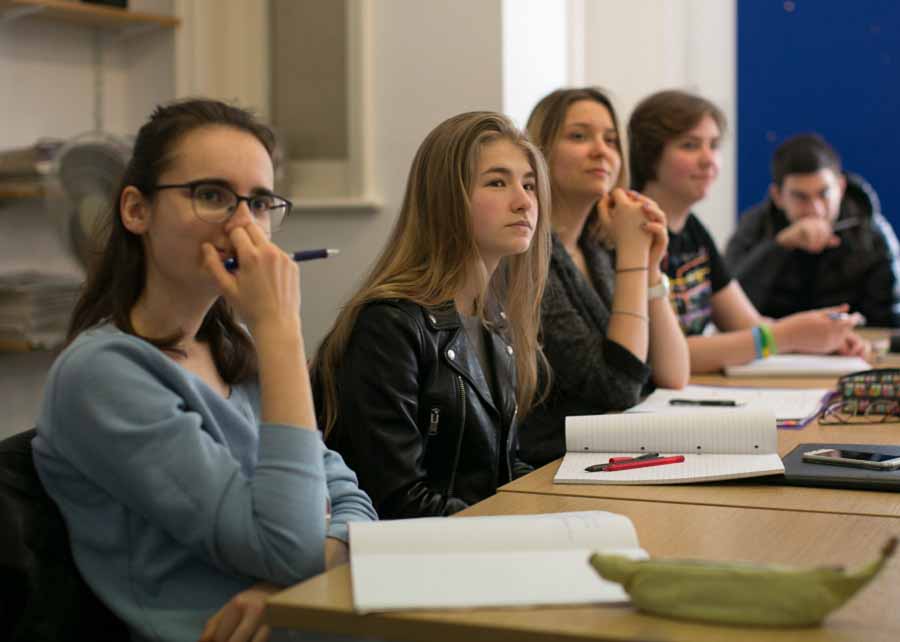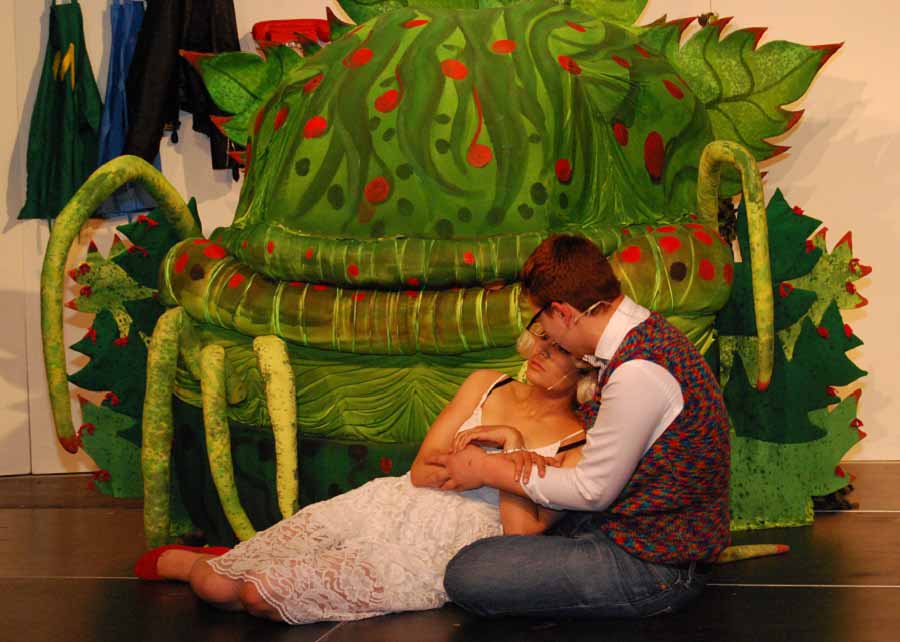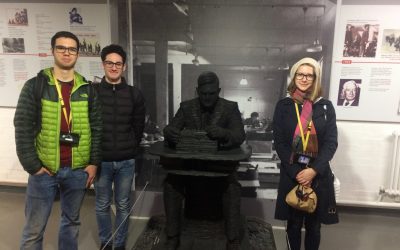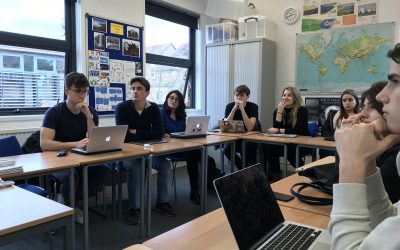IB or A Level?
In 1978 St Clare’s decided to stop teaching A Levels in favour of the then little known International Baccalaureate Diploma. We recognise the considerable advantages that the IB offers young people as they prepare for the next stage of their life.


What are the differences between these two qualifications?
- IB students take six subjects, three at higher level and three at standard level. These subjects are studied for two years and are examined at the end of that two-year period.
- In contrast, A Level students, usually take 3 or 4 subjects and the full two-year course of study is known as the A Level.
- The IB offers a broader education: there are six subject groupings and students have to take a subject from each of these groups:
- Language and literature
- Language acquisition
- Individuals and Societies
- Sciences
- Mathematics
- Arts or Electives
You can choose to study Music, Theatre or the Visual Arts from this group OR you can choose one of the following:- another language
- another subject from Individuals and Societies
- another science
This flexibility means that it is possible to take Biology, Chemistry and Mathematics – if you want to study medicine – plus literature, a language and a social science subject.
It is also possible to take unusual subject combinations – Italian, English, Chemistry, Mathematics, Psychology and Art, which would be difficult to replicate in an A Level school.
There are also a number of other requirements which are an integral part of the IB. Each student prepares a 4000-word essay based on an original piece of research and there is a compulsory Theory of Knowledge course which is also assessed. Finally, the IB involves a compulsory programme known as CAS (Creativity, Activity and Service). This involves taking part in Creative, Active or Community activities with a reflective writing component. It is impossible to be awarded the Diploma without satisfying this component.
Schools which offer the A Level will, of course include sporting, cultural and volunteering activities within their sixth form curriculum but there is no attempt to integrate these elements in the same way that this has been done with the IB.
How difficult is the A Level when compared to the IB Diploma?
- The highest possible score for the IB is 45 points – only 0.2% of students worldwide are able to achieve this each year. The pass mark is 24 points, which is achieved by only 78% of students worldwide each year. Compare this with the A Level where hundreds of schools and colleges are able to report a 100% pass rate when the results are published each year.
- According to the UCAS tariff, 45 points is the equivalent of 5 grade A* at A Level; 40 points is the equivalent of 4 grade A* at A Level and 35 points is equivalent to 2 grade A* at A Level and 1 grade A.
The percentage of students achieving a Diploma each year has remained constant over the last decade which indicates that, unlike the A Level, there has been little grade inflation.
When choosing a sixth form, in addition to grades students should look at the ethos of the school or college, the level of support given to students and the level of careers advice – all of which contribute to finding a school where a young adult will be happy and productive.
Melanie Moorhouse, Head of Careers at St Clare’s Oxford provides continuous advice and updates on her blog.


Further Reading
2018 IB Results
Big congratulation to our IB class of 2018! St Clare’s students achieved outstanding results with an average score of 36 points. The average score worldwide is 30 points. Students have gained places at Oxford, LSE and top universities around the world. For...
Bletchley Park Visit
On the 29 April 2018, 11 IB students and 4 teachers visited Bletchley Park, the place which was once the central site for British codebreakers during World War Two. The location, famous for where Alan Turing broke the enigma code is perfect our history students as...
Career Launch Day
On Monday 26 March the IB1 students were given a career's launch day where they attended career focused sessions tailored to their application plans and subject interests. This ranged from talks on taking a gap year to writing personal statements. We were extremely...
We would be happy to discuss this in more detail
Send us your details so we can tell you more



